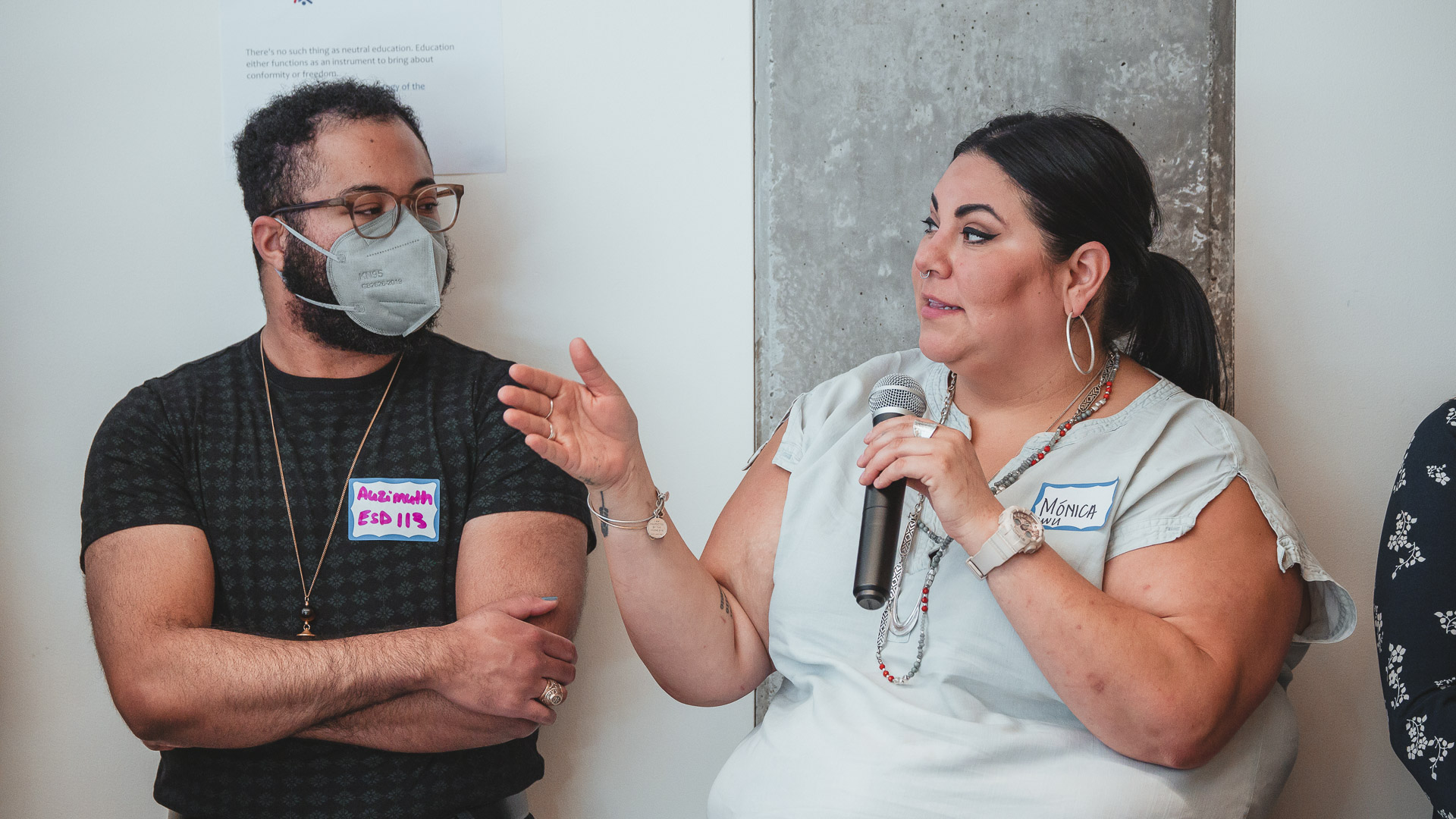
“This work is about building more seats at an already active table,” says Mónica Medrano, regional director of Central Washington University – Wenatchee and CWU – Moses Lake. She describes the teacher preparation work happening at area community colleges and at universities and the need to better connect the two for local students.
Explaining how the LEADER Initiative offers an opportunity to think about post-secondary pathways holistically, Medrano says, “It’s not just having the right math and English classes, but asking what college means and how it impacts the entirety of who you are.”
Medrano’s lived experience influences her work. “Being born and raised in this community and attending kindergarten through 12th grade has shaped my ideas on how I would like to be a change agent in my community.,” she says. “And while I had a great college experience, the social climate was hard to navigate. Being Latina and a first-generation college student, I felt out of place at the same institution I serve at now.”
Wanting students to feel seen on campus and working to open the way, Medrano gives the example of a partnership event between CWU, local school districts and local community colleges to bring prospective students to collocated campuses. Giving place-bound students a more holistic experience about their potential futures on campus, the event integrated information about the journey of transitioning through high school, community college and university to obtain a degree.
Creating these kinds of dialogues and connection points taps into an existing ecosystem of people seeking potential pathways and ways to contribute. “This community is full of magical people,” Medrano says. “There is so much to us, and it’s why I do what I do. I am asked about CWU all the time, for example when I run into people at the local grocery store, and I get questions about programs, financial aid, or dorm arrangements. The LEADER grant offers me an opportunity to be closer to the community and people that this matters to.”
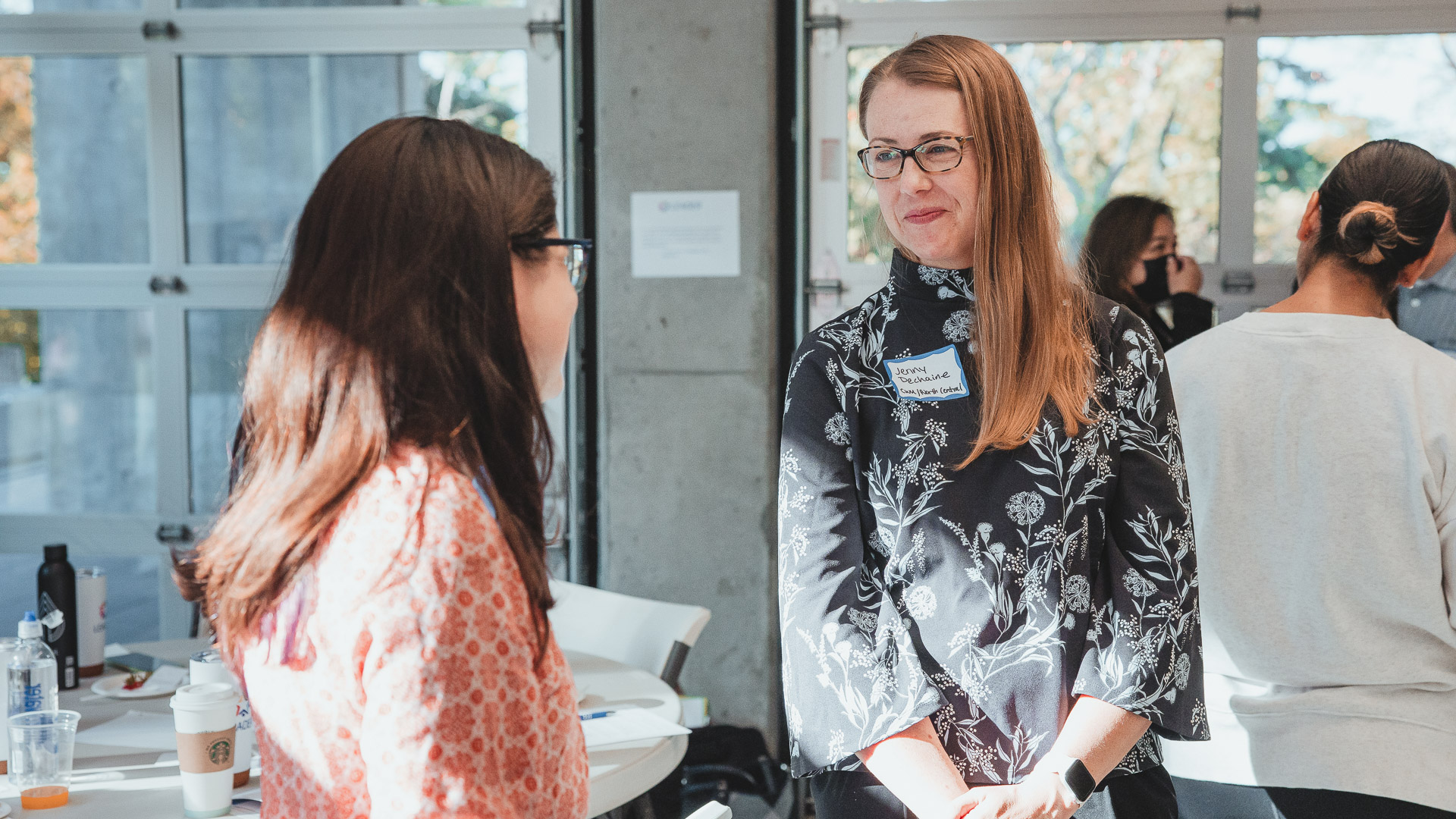
Central Washington University wants to follow rather than lead as they work on developing pathways that include teacher recruitment and retention. “We can’t be out there telling people what to do,” says Jenny Dechaine, associate dean, and director of the School of Education at Central Washington University. “We’re not going into the LEADER project with a specific plan. Instead, we look forward to creating broader and deeper regional partnerships and learning from each other.”
The process requires time. Medrano talks about the need to invest in partners, develop trusting relationships, shift power dynamics, and examine data that shows the problem areas versus data that only shows what’s working. Dechaine appreciates the pivotal role of Medrano and other colleagues like Yukari Amos, a professor in teaching English language learners/bilingual education and on the Washington Paraeducator Board.
“There’s lots of momentum around this work right now,” Dechaine says. “We’ve connected with previous partners, people involved through the North Central Educational Service District, Wenatchee School District, Quincy, Eastmont, some teaching academy programs, and more. Also, there’s a legislative funding stream for teaching academies, including college credit courses in high school to get students started in the teaching profession.”
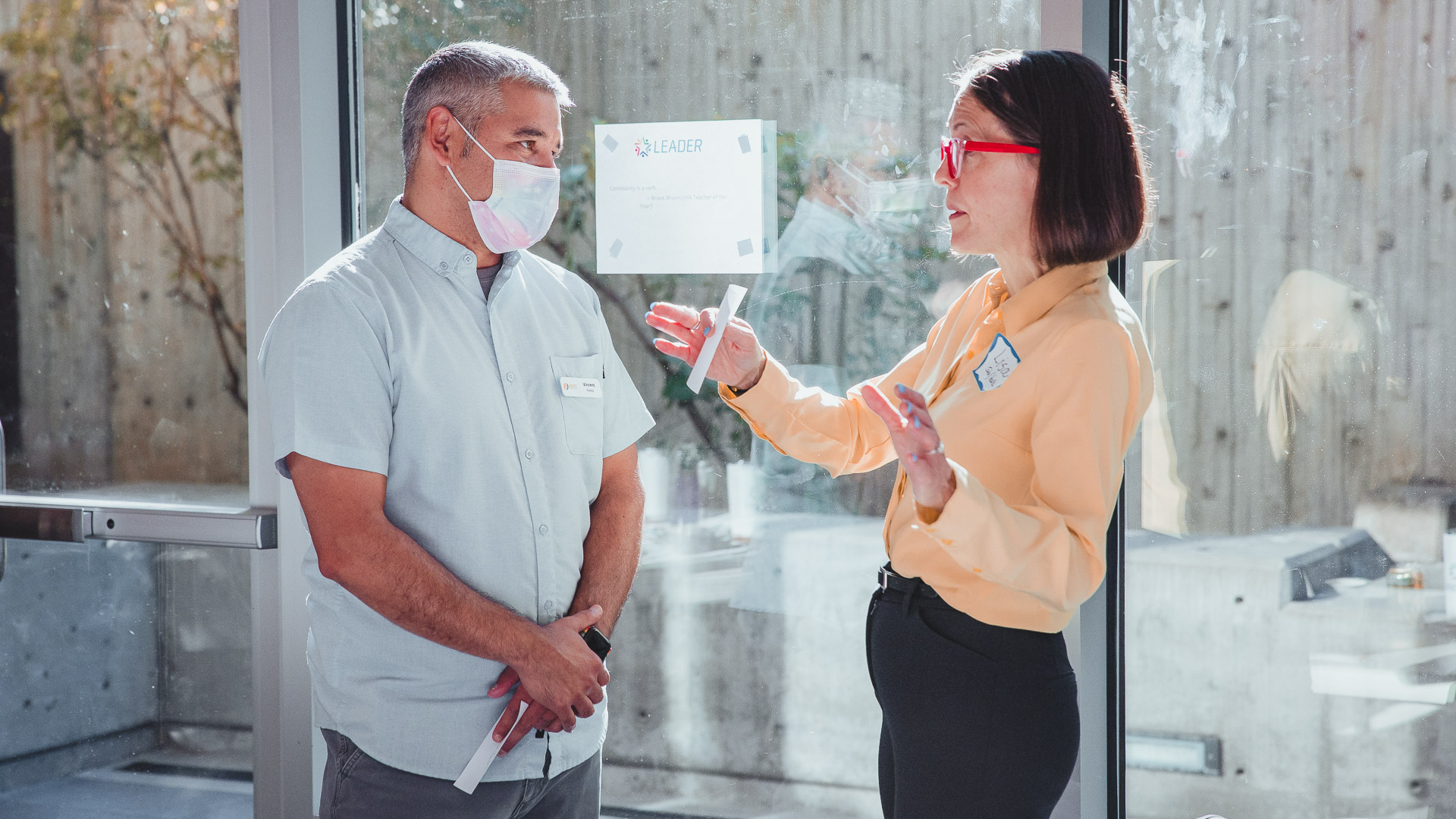
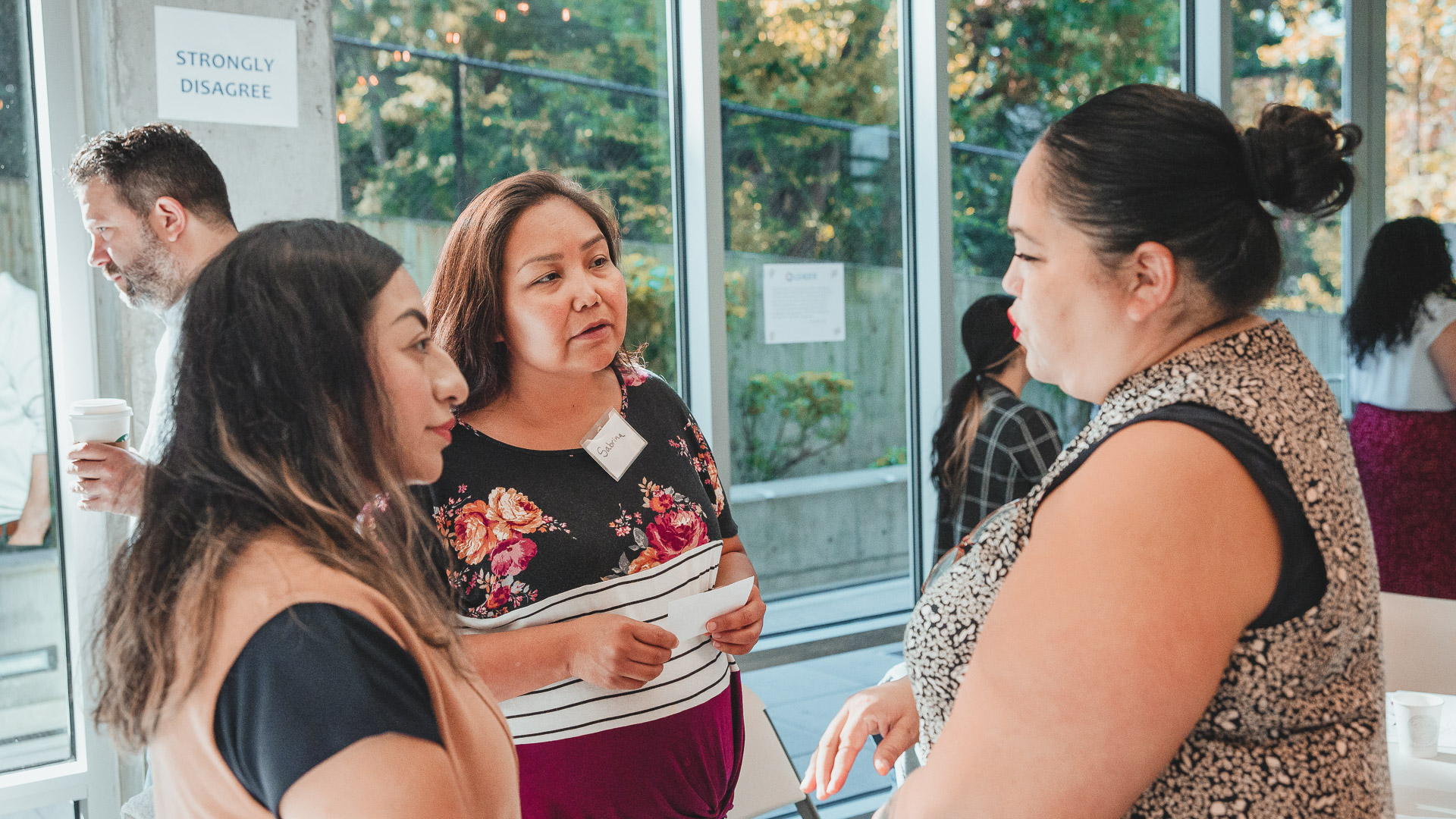
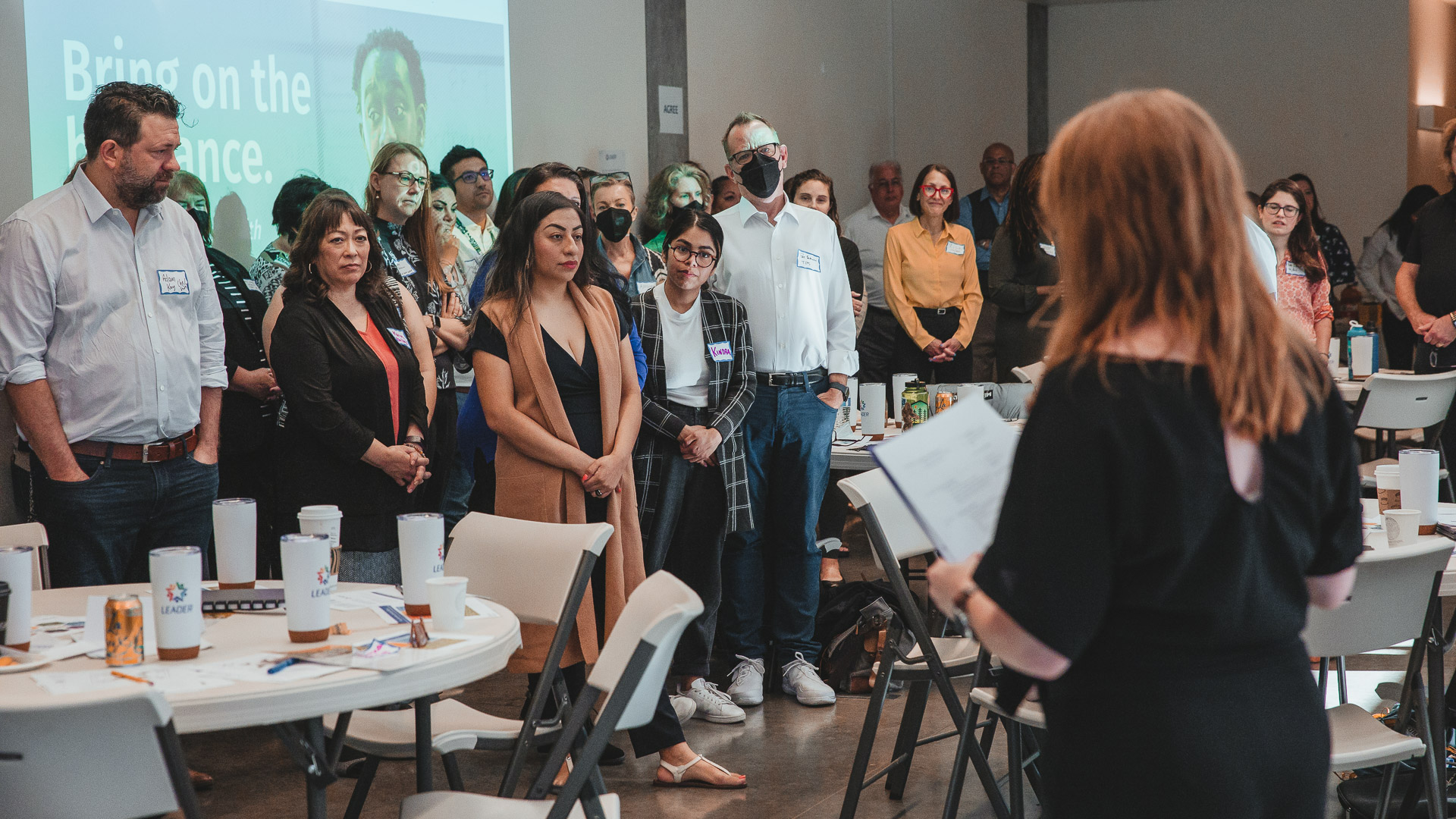
As they move forward, they are focused on connecting and building on the existing expertise of community organizations, local ESDs, specific districts, teacher academy programs at Central and the local community colleges. “Besides having community college partners, high school partners, and stakeholders from within the university, it’s asking who else can make this magic happen,” says Medrano. “Where do our communities feel safe? What strategies can we realize together as a collective of parents, alumni, teachers, community partners and professors. We’re all working on these pathways. How do we bring them together to create more opportunities for the North Central Washington region?”
Find out how you can Get Involved, explore our virtual Events, or sign up below for news updates about the LEADER initiative.
Get the latest — subscribe to our electronic newsletter.
By signing up you agree to receive occasional communications from College Spark Washington. You can unsubscribe at any time. We respect your right to privacy. Please review our Privacy Policy
